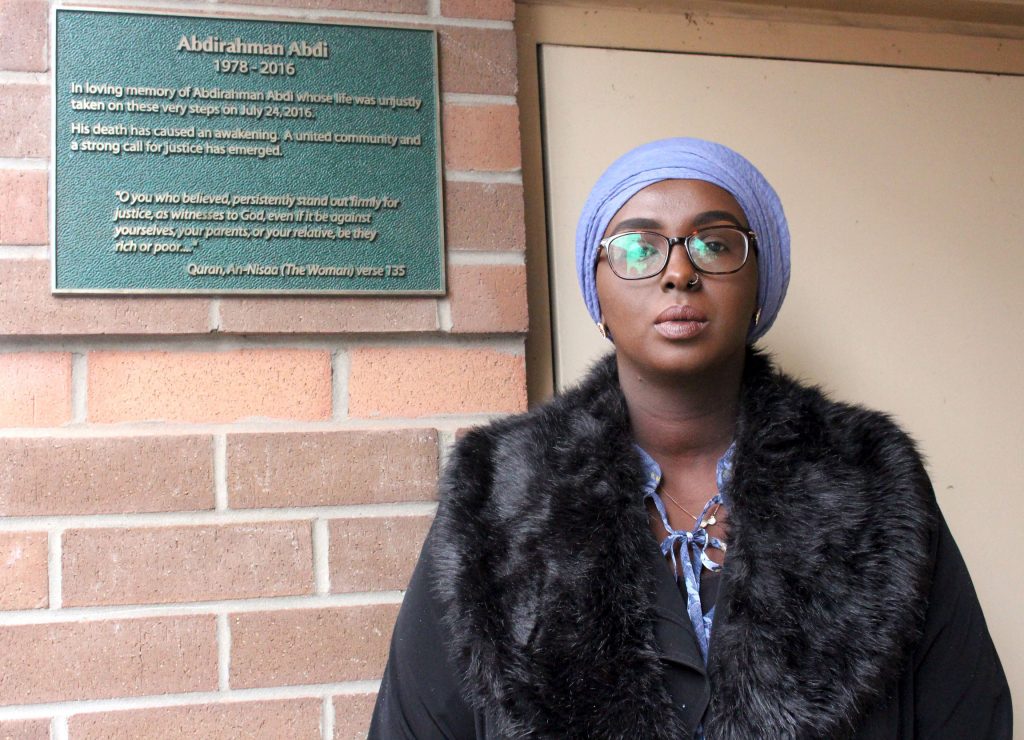Safer Ontario Act strives to redefine and improve policing in Ontario
By Haneen Al-Hassoun
The Ontario government is proposing major changes to its policing practices by redefining officers’ duties and strengthening oversight bodies.
The changes are being widely viewed as a way to improve police relations with visible minority communities in the province, where several high-profile incidents — including the July 2016 death of a Somali-Canadian man while in Ottawa Police custody — have sparked controversy.
Marie-France Lalonde, Minister of Community Safety and Correctional Services, and Attorney General Yasir Naqvi announced on Nov. 2 that the Ontario government would soon introduce the Safer Ontario Act, described as the biggest change to provincial policing in a generation.
The bill was also the government’s response to Justice Michael H. Tulloch’s Independent Police Oversight Review, the final report of which was released earlier this year. It also comes in the wake of the July 2016 death of Abdirahman Abdi, who died in custody following a violent altercation with police outside his Hintonburg home.
An Ottawa Police officer faces a manslaughter charge in the case, but the officer’s defence lawyer recently suggested at a pre-trial hearing that Abdi may have died of a heart attack.
Dahabo Ahmed Omer, spokeswoman for the Justice for Abdirahman Coalition, said the coalition welcomes the Ontario government’s proposed changes to police oversight. She said the group made recommendations to Justice Tulloch with regards to police conduct and relations with visible minority communities, and noted that many of those concerns are reflected in the proposed legislation.
“Seeing some of these policies come out now … we are proud of it for sure,” she said. “I think it just speaks to the fact that when regular people come together and decide that there’s something that needs to be done about something, it can be done.”
She added that while the coalition members have not seen the fine detail of Bill 175 yet, they’re “cautiously positive about the outcome.”
Naqvi said in an interview that the Safer Ontario Act is a much-needed modernization of policing systems in Ontario.
“I feel very strongly that the timing couldn’t have been better given the role of technology, how Ontario has become even more diverse, how our population has grown, that this is exactly the kind of direction we need to go to really put in strong roots around community-based policing in the province,” he said.
According to the release, the new act would strengthen police oversight by expanding and clarifying the mandates of the three oversight bodies in Ontario—the Special Investigations Unit, the Office of the Independent Police Review Director and the Ontario Civilian Police Commission.
SIU director Tony Loparco said in a statement that he “wholeheartedly welcomes” the bill.
“Not only will updated and separate legislation provide the Unit with the ability to conduct more rigorous and independent investigations, it will also allow for more transparency and accountability for policing and oversight as a whole,” he said.
Omer said publicizing reports of investigations is important because families of those thought to have been mistreated by police are often left wondering about the SIU’s findings.
“If the organization that is supposed to instill law and order within a community is not telling the people, ‘Here’s how we’ve done it,’ how do you expect people to believe you when it involves a public servant?” she said.
The Safer Ontario Act also calls for mandatory anti-racism training for those operating police oversight bodies.
Omer said that while having cultural sensitivity is important, “nothing beats actually having diversity within the work force.”
Naqvi echoed this sentiment and said that to have effective community-based policing, Canada’s diverse communities need to see themselves reflected in the police services.
“We need to encourage our police services and our police services boards that they have to be reflective of the community. They have to bring in local practices that ensures that people of diverse backgrounds are being recruited as police officers,” he said. “All those fundamental tools are very much embedded in this legislation if it’s passed into law.”

